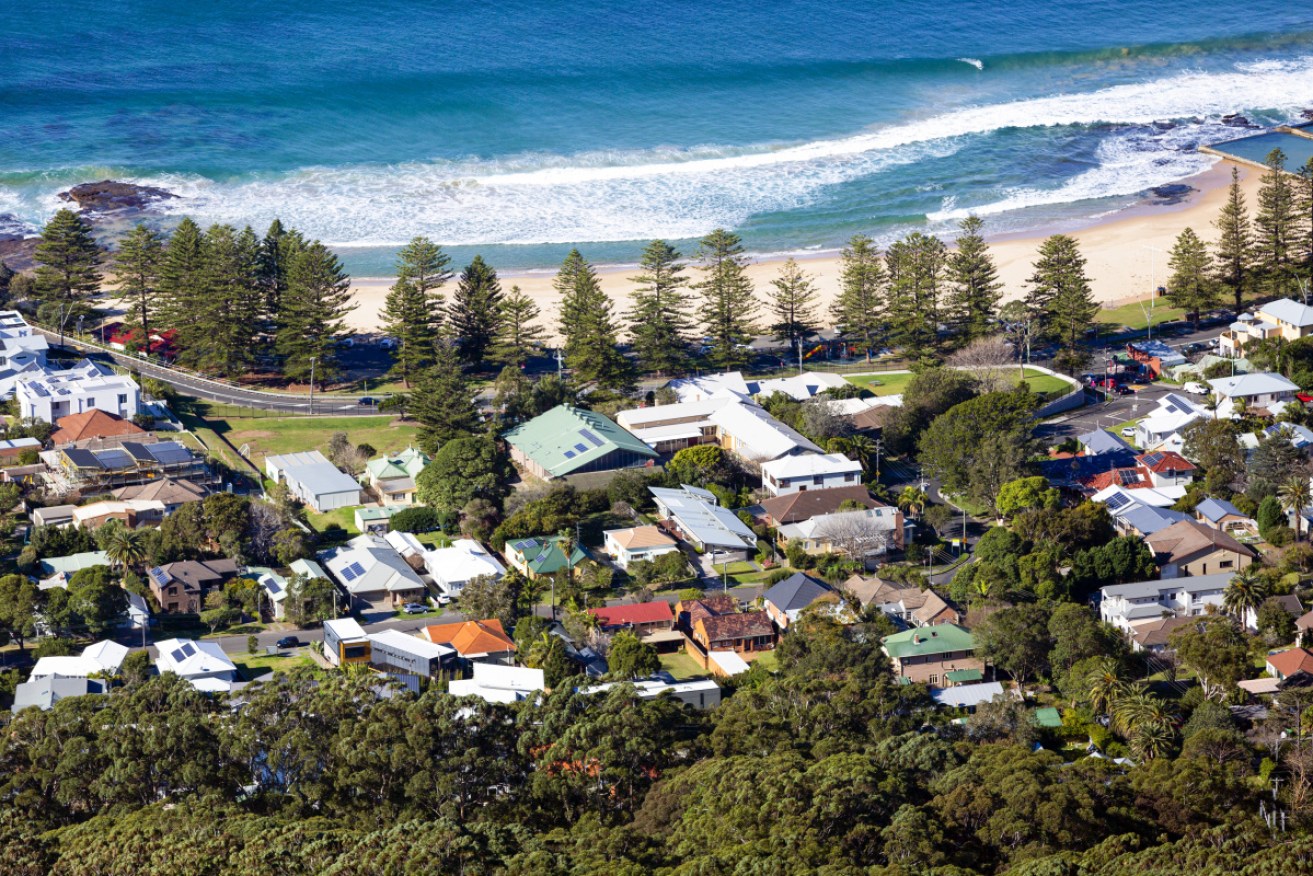Stagnant wages to suppress consumer spending despite lift in house prices


Rising property prices will do little to revive the ailing economy. Photo: Getty
Rising property prices will do little to revive Australia’s ailing economy, economists have warned.
Fresh CoreLogic data has revealed property prices have continued to grow apace in September, with home values in Sydney and Melbourne last week recording monthly increases of 1.6 per cent and 1.7 per cent respectively.
In his past two monthly statements, Reserve Bank governor Philip Lowe said the property market turnaround was expected to boost economic growth by encouraging greater consumer spending.
Previous RBA research has found a 10 per cent change in housing wealth affects consumption by 0.75 per cent in the short run and 1.5 per cent in the long run.
But AMP Capital senior economist Diana Mousina told The New Daily that low wages growth would outweigh any lift in consumer spending caused by the house price recovery.
“We still have a lot of other negatives that might keep consumer spending lower over the next few years,” Ms Mousina said.
“Even though real wages growth has been picking up over the past year, consumers don’t tend to think about their real wage. They tend to think, ‘well I’ve only had a 2 per cent increase in my wage over the past year, which isn’t good’ … so that really weighs on consumer spending.”
Unlike some commentators who believe we are on the cusp of another housing boom, Ms Mousina predicts property prices will grow by 5 to 6 per cent over the next 12 months – a more modest projection premised on weak foreign demand, unit oversupply and tight lending conditions counteracting the combined stimulatory effect of interest rate cuts and looser loan serviceability requirements.
Ms Mousina said price growth within this range would not have a large enough wealth effect to significantly lift consumer spending, which has so far shown little response to the government’s tax cuts.
“But if we do see the housing market grow 10 per cent or more year on year, then that would be pretty positive for some areas of consumer spending,” she added.
“[Especially] in areas like household goods and services … as people buy new furniture and equipment to get their homes ready for auction.”
UNSW economics professor Richard Holden also poured cold water on suggestions the stabilisation of the housing market would lead to a significant lift in consumer spending.
Dr Holden said the recent recovery needed to be viewed against the backdrop of an 18-month downturn that cut values in Sydney and Melbourne by more than 10 per cent.
“So I think we would need to see much more significant rises before there was a big wealth effect,” Dr Holden told The New Daily.
Property prices in Melbourne and Sydney are currently growing at well above 10 per cent per annum.
If sustained, that level of price growth would likely lead to a significant rise in consumer spending. But it could also lead to another debt-fuelled housing bubble – an outcome that APRA chairman Wayne Byres does not want to see.
Speaking in Melbourne at the weekend, Mr Byres said the risks that prompted APRA to introduce caps on investor lending in 2014 – namely “high prices, high debt, low interest rates and subdued income growth” – had not gone away.
“It would therefore be unwise for lending standards to be allowed to erode again as a means of generating lending growth,” he said.
“And on the demand side, it would be unhelpful if recent [and prospective] interest rate reductions led to a resurgence in speculative activity.”
Mr Byres’ comments came after ABS figures revealed new mortgage lending had increased 3.9 per cent in June.
The numbers were much higher than market expectations and led economists to suggest the regulator would soon slam on the brakes.
UBS chief economist George Tharenou said on Friday APRA was ready to introduce macro-prudential measures.
And Brendan Coates, the Grattan Institute’s program director of Household Finances, agreed, telling The New Daily, “it won’t be long” until regulators intervene.
“I don’t think anyone wants to see 10 per cent high price growth year on year in Melbourne and Sydney again,” Mr Coates said.
“I would be surprised if the [Reserve Bank and APRA] let that happen again. As long as prices aren’t falling, I think everyone would be happy.”
Correction, 18 September 2019: An earlier version of this article incorrectly cited Brendan Coates as a research fellow at the Grattan Institute. Mr Coates is in fact program director of Household Finances at the think tank.










